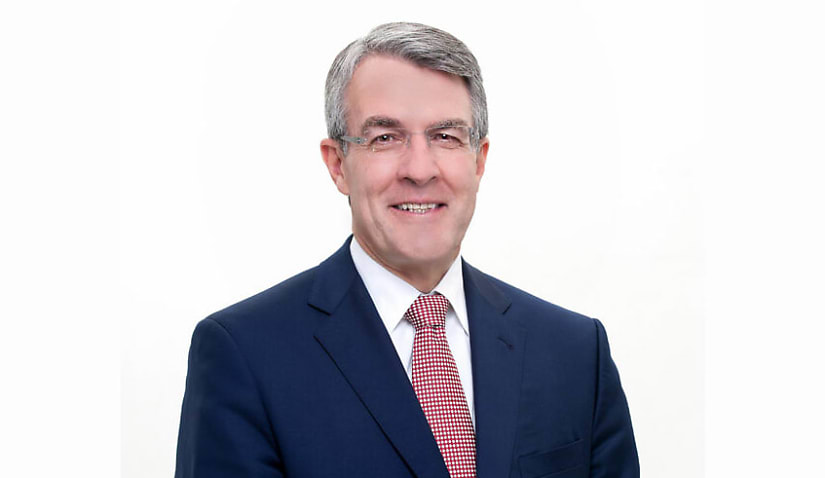Australia’s Attorney-General has slammed the “scourge on our society” that is male violence, in remarks earlier today (Friday, 19 April).

Speaking both on ABC Radio and to a Melbourne-based press pack today, Attorney-General Mark Dreyfus has underscored the need for action in the wake of two horrific stabbing incidents in Sydney in the past week and against the broader backdrop of continued violence against women perpetrated by men.
In conversation with host Patricia Karvelas on ABC National Breakfast, A-G Dreyfus declared that “violence against women is never OK”.
“We’ve seen too many instances of violence against women. Enough’s enough. Australians deserve to live their lives in safety,” Dreyfus said.
Separately, Dreyfus said that “there is a crisis of male violence in Australia” to reporters at a press conference in Melbourne.
Responding to a question about the more than two dozen women who have been killed so far in 2024, the A-G said such instances of violence offer “the daily, weekly, monthly reminder that we have to do more”.
The two incidents in Sydney in the past week, Dreyfus said, are not reflective of a current or passing cultural issue but rather indicative of a “longstanding problem” in Australian society.
When asked by Karvelas about whether violence against women should be deemed terrorism, the A-G responded:
“I think we can talk about violence against women without blurring lines into something else. We’ve got a crisis of male violence in Australia. We know that it’s a scourge in our society. We know it must end, and I think it’s really clear women can’t be expected to solve violence against women alone. It is time for men to step up, and I don’t think debating definitions is the way to go.”
“We need to act. We need to educate ourselves. Men need to step up. We need to talk to our sons, to our colleagues, to our friends. We need to work together to [find] a solution. I’m wanting everybody to think about this differently. What we need is for an acknowledgement of the devastating consequences of violence, of the deep distress that’s being felt in our community right now,” Dreyfus submitted.
“We need to accept that family and domestic violence is indiscriminate. That there are women of every age from every cultural background with different jobs and levels of education or income living in different areas and leading different lives, that family violence destroys lives. That one life lost is too many, and it’s got to end. I know that governments at all levels need to be working on this together.”
“It’s a primary responsibility for me as Attorney-General,” he said.
Karvelas asked whether investigators should consider whether the Bondi Junction attacker was “influenced by [an] incel ideology”, Dreyfus said it wouldn’t be appropriate for him to comment while the work of NSW Police is ongoing.
In comments posted ahead of the FCFCOA conference, Alstergren CJ said: “The prevalence of family violence throughout our communities is a national disgrace.
“We’re not even halfway through the year, and yet 28 women have reportedly been killed in 2024 so far. Family violence is simply unacceptable, and it must stop.
“In recent years, the FCFCOA has been actively focused on improving the identification of risk and making enormous changes to how it responds to cases that involve allegations of family violence. Court data shows that the families that come before our courts are, more often than not, faced with a range of complex issues.
“Approximately 91 per cent of parenting cases have one or more major risk factors alleged (such as allegations of family violence, child abuse, serious mental health and substance misuse issues), and 69 per cent of our parenting cases have four or more major risk factors alleged.
“Through recent and sophisticated risk assessment methods and sharing of information with police and child protection, the courts have better and more timely access to critical information about the families and children involved in proceedings and the various risks facing those families. This information assists with better informed decisions around the safety and best interests of children.
“Although a significant amount of work has been done, especially by advocates, victim survivors, government and those working in the domestic and family violence sector, more can be done.”
Dreyfus supported this, telling reporters: “We’ve made sure by amendments to the Family Law Act that family violence issues are going to be taken into account. I think there are much better processes now for women to seek protection than was the case decades ago. I think there was more legal assistance available to women who need to seek help, and I think that there’s a better understanding in government, and in courts of what the problem actually is. But we’ve got more work to do.”
And while the hosting of the symposium by FCFCOA sends a “tremendously good message”, there needs to be collaborative work done, the A-G added.
“That we can’t be siloed, that we can’t just have the judges of the court doing things not connected to all of the welfare agencies and all of the family violence organisations. Everybody needs to work together,” he said.
“One of the reasons we passed an Information Sharing Act last year was to make sure that where the state and territory child welfare authorities have information that it gets fed into family law proceedings in this court.”

Jerome Doraisamy is the managing editor of professional services (including Lawyers Weekly, HR Leader, Accountants Daily, and Accounting Times). He is also the author of The Wellness Doctrines book series, an admitted solicitor in New South Wales, and a board director of the Minds Count Foundation.
You can email Jerome at: